https://www.herdfoundation.org

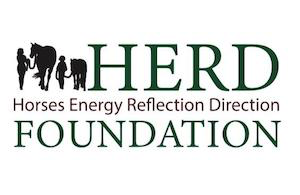
HERD Foundation
14052 52ND AVE SOUTH
Delray Beach, FL 33484
Mailing Address:
5135 Conklin Drive
DELRAY BEACH, FL 33484
Phone: 954-675-5065
MAKE AN INQUIRY
View our WEBSITE
EIN: 83-2268455Founded: 2018
View our PHOTO GALLERY
Profile Last Updated February 18, 2025Public Charity

The Guardian Seal of Transparency is awarded annually to recognize an organization's commitment to transparency and accountability by their willingness to make comprehensive data about their programs, horse care practices, and governance available for public scrutiny. The Guardian Seal of Transparency is NOT an endorsement.
Last Updated: April 30, 2025
HERD Foundation has not attained the Guardian designation for 2026.
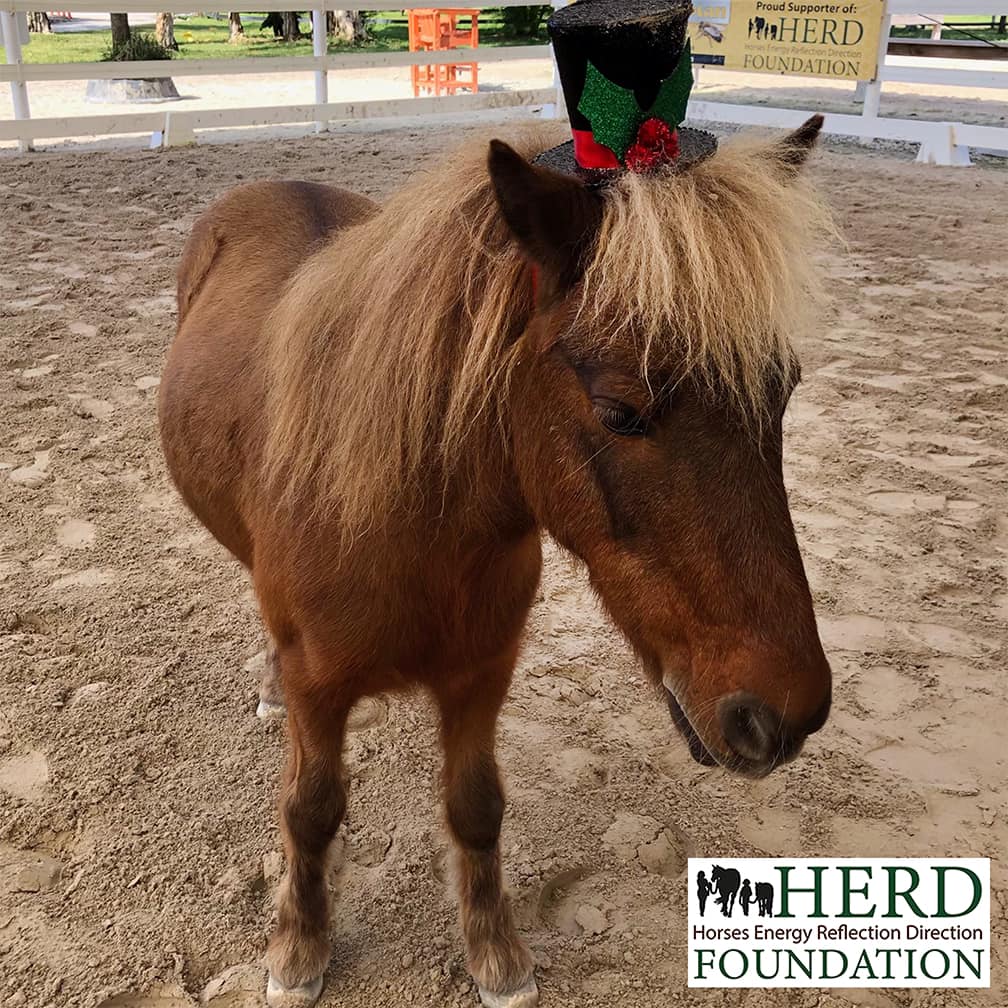
MISSION & PROGRAMS
Mission:HERD Foundation’s Mission is to provide equine-assisted services as a prevention program designed to empower individuals to achieve personal development through connected relationships between humans and horses.
Our sessions are based on the treatment models of the Equine Assisted Growth and Learning Association (EAGALA) and the Professional Association of Therapeutic Horsemanship (PATH).
Our organization conducts Equine Assisted Services in accordance with the EQUUS Foundation Guidelines on Qualifications of Organizations Conducting Equine Assisted Services (EAS).
Our organization provides outreach and/or public education programs involving horses.
100% of our total programs and services are equine-related.
Our organization is directly responsible for the care and shelter of equines involved in our programs.
Our organization does not CURRENTLY use satellite, overflow, foster, and/or outreach facilities.
Please describe what steps your organization takes to ensure that:
1) all interactions between your equines and people are mutually beneficial and conducted in accordance with the Guidelines for Human-Equine Interactions stated below;
2) all equines in the care of our organization and/or equines that participate in the organization's program have access to clean drinking water at all times; nutritious food in sufficient quantity, including natural forage such as pasture grass and/or hay; appropriate veterinary, farrier, and dental care; shelter and protection from the weather; sufficient safe space to move around comfortably on a daily basis; and daily opportunity to freely interact and have contact with other equines:
All equine-assisted sessions at HERD Foundation are conducted on the ground with the horses at liberty, meaning they can move freely about the arena and choose how and when to interact. This method is particularly powerful because a natural shift in the relationship dynamic between horse and participant occurs— moving from a relationship that puts human above horse to one that is based on partnership, clear communication, and trust.
HERD’s team is hands-on with the equines participating in our programs and work very closely with the employees and management of Johnson’s Folly to ensure that the equines have plenty of water, food, are groomed and are healthy and comfortable.
Additionally, our Executive Director schedules all sessions in a way that the horses are not being overworked.
Equine Assisted Services (EAS) Overview:
Overview of our programs involved with providing EAS to individuals with special needs:
FREEDOM PATCH PROGRAMS
This program is for military veterans and their families. The Objective of the Freedom Patch programs is to improve the mental health and well-being of veterans and their families. Our goal is to connect humans to horses so that participants can learn the skills of connection and belonging. Our hope is that when participants engage with horses in the arena they learn how to build healthy and attuned relationships, both with themselves and others.
HERD’s Freedom Patch Programs have six components:
1. The Freedom Patch Domiciliary Veterans Program (DOM) meets for 60 minutes once a week for 4 weeks. Serves homeless Veterans enrolled in a 45-day residential treatment program at the West Palm Beach Veterans Administration Medical Center (VAMC). This group provides support, connection, and belonging to veterans experiencing homelessness and substance abuse.
2. The Freedom Patch Level 1 Veterans Program (FP1) meets for 90 minutes once a week for 8 weeks. In this group veterans learn horsemanship skills while growing their sense of connection and belonging.
3. The Freedom Patch Level 2 Veterans Program (FP2) meets for 90 minutes once a week for 8 weeks. The Veterans are alumni/graduates who have completed FP1 or the DOM Program.
4. The Fall-In Friday Program is designed for Veterans who have completed both the Freedom Patch I & II programs. Freedom Patch graduates may continue to take part in our Veterans Program by attending the Fall In Friday group which meets every Friday for 90 minutes.
Veterans are given the opportunity to learn more advanced horsemanship skills and continue to build the relationships they have formed with the horses and other Veterans in the program. Fall In Friday is a continuously running group that has run nonstop every Friday for over four years.
5. Freedom Patch Families for military families. A 10-week program. Sessions are 60 minutes long. The program focuses on strengthening communication and connection.
6. Freedom Patch Wounded Warrior Project. Through PATH International & The Wounded Warrior Project Reimbursement Program, Veterans who served post 9/11 are eligible to receive funding for 10 Equine-Assisted Services (EAS) sessions at HERD Foundation. This funding may be utilized for participation in our group programs for Veterans or for private, one-on-one EAS sessions.
Equine Assisted Services (EAS) and Providers:
Our organization provides the following Equine Assisted Services (EAS):
Equine-assisted Learning in Personal Development
4: Total number of Equine Assisted Service Providers at Johnson's Folly Horse Farm
1 Carly Loor
FACILITY PARTICIPATION:
Johnson's Folly Horse Farm
RELATIONSHIP: Independent Contractor
SERVICES PROVIDED:
Equine-assisted Learning in Personal Development
DEGREES, LICENSES AND/OR CERTIFICATIONS
Licensed Clinical Social Worker, specializing in Equine Assisted Psychotherapy
Trauma-Focused Equine Assisted Psychotherapy through Natural Lifemanship
EAGALA, Equine Specialist in Mental Health and Learning
PATH Certified Therapeutic Riding and Vaulting Instructor.
2 Nongae Johnson
FACILITY PARTICIPATION:
Johnson's Folly Horse Farm
RELATIONSHIP: Independent Contractor
SERVICES PROVIDED:
Adaptive/Therapeutic Unmounted Horsemanship
DEGREES, LICENSES AND/OR CERTIFICATIONS
Therapeutic Riding Instructor/Equine Specialist in Mental Health and Learning: PATH Int'l - Denver, CO 2011
Equestrian Studies: Meredith Manor International Equestrian Center - Waverly, WV 1985
Horsemanship: Handling/Care Parelli University - Reddick, FL - 2011
3 Rhonda Fritzshall
FACILITY PARTICIPATION:
Johnson's Folly Horse Farm
RELATIONSHIP: Independent Contractor
SERVICES PROVIDED:
Equine-assisted Learning in Personal Development
DEGREES, LICENSES AND/OR CERTIFICATIONS
CERTIFICATIONS
Florida State Certified Mental Health Professional
Equine Therapy Certification | Trained EAGALA Model|2013
Parenting Education Certification | Children’s Service Counsel | 2011 (Triple P Accreditation)
Play Therapy Training | Parent Child Center | 2011
Strengthening Families Certification | Hanley Center | 2011
Certified Family Life Educator | Children’s Service Counsel | 2007 Children's Prevention Facilitator | Hanley Hazelden | 2007
Behavioral Health Certification | Florida Board Certification | 2004 Equine Therapy Training | Behavioral Health Institute | 2004
Life Coach Certification | Florida Religious Institute | 2001
Certified Parenting Educator, Systematic Training for Effective Parenting (STEP) | 1999 Montessori Teaching Certification | Blake School | 1982
BACHELOR’S DEGREE IN PASTORAL PSYCHOLOGY | Florida Religious Institute, City, FL | 2001
4 Sarah Loretangeli
FACILITY PARTICIPATION:
Johnson's Folly Horse Farm
RELATIONSHIP: Independent Contractor
SERVICES PROVIDED:
Equine-assisted Learning in Personal Development
DEGREES, LICENSES AND/OR CERTIFICATIONS
Eagala Certification
Natural Lifemanship Fundamentals training with Don Jessupa
Outreach and/or Public Education:
Since September, 2019 HERD Foundation and the West Palm Beach VA Medical Center have a Memorandum of Understanding to offer the Freedom Patch Programs to veteran participants referred by the West Palm Beach VA Medical Center.
Since 2023, HERD Foundation has been a part of the Mission United Initiative by United Way of Palm Beach County. This coalition of veteran organizations in Palm Beach County has been an important part of our outreach as we get to participate in several events throughout the year where we share about The Freedom Patch Programs to the veteran population in Palm Beach County.
In 2024, HERD Foundation became a part of the VA Suicide Prevention Community Task Force; and a partner of the Circle of Care Coalition of the Suicide Prevention Team of the West Palm Beach VA Healthcare System.
In March 2024, HERD was invited to participate in the Saint Patrick's Day parade put by the City of Delray Beach and we got to parade with the mini horses and our veteran participants. This was such a great community outreach opportunity and we are invited to participate again for 2025.
HERD Foundation is an active participant of the Delray Chamber of Commerce.
Lastly, HERD is a Premier Facility accreditation through PATH Int., recognizing HERD as a program of excellence and entering it into the Wounded Warrior Project network.
Research/Medical Use of Equines:
Our organization has never made, and would not ever consider making, equines available for research studies or medical training that involves invasive procedures and/or that which may cause pain or suffering to the equine.
Religious Affiliation:
Our organization does not promote religious education, religious purposes, or a specific religious faith or use donations for religious education or religious purposes; require participants to be of a certain faith; require participation in religious, instruction, activities or services; or require participation in prayer, worship, religious instruction or other religious activities as a condition of receiving social or secular services offered.
Auction Donation:
Our organization has never allowed, or would not consider allowing, an equine to be sold, transferred, released, or otherwise placed into possession of any person or organization that would cause or allow the equine to be sold at auction for slaughter.
POLICIES: INTAKE, ASSESSMENT & TRAINING
Prior to a horse being accepted and/or arriving at the facility, the organization has the following policies in place:The owner of a potential equine is interviewed over the phone or in person prior to seeing the equine
The equine is evaluated at its place of residence
The owner completes an application/contract which constitutes the agreement between the owner and our organization when the equine is acquired from the equine's owner other than by seizure or by abandonment
The owner is financially responsible for the shipping of the equine to and from the organization
If health records are not available or are out-of-date, our veterinarian will administer appropriate vaccinations
A health certificate signed by a veterinarian and dated no more than seven days prior to arrival is provided to our organization either prior to or upon arrival of the equine attesting to the health status of the equine
Trial Period: Check all that apply:
Equines are on trial for 60 or more days
The trial period may be reduced based on the equine's progress
During the trial period, the organization accepts total financial responsibility for the care of the equine, including board, feed, shoeing and any necessary veterinary care
During the trial period, the organization accepts financial responsibility for the care of the equine, including board, feed, shoeing and any necessary veterinary care, up to a fixed amount agreed upon by the organization and the owner
The trial period may be terminated by either the organization or the owner for any reason
Equines are on trial for up to 30 days
Equines are on trial up to 60 days
During the trial period, the owner/donor is financially responsible for the care of the equine, including board, feed, shoeing and any necessary veterinary care
Upon intake, the organization has the following quarantine policy in place:
The equine is confined to a designated and separate area for isolation and quarantine at the facility for a prescribed period of time
The equine is confined to a designated and separate area for isolation and quarantine off-site for a prescribed period of time
The equine is not quarantined
The typical length of quarantine is: Up to 10 days
Following arrival of the equine at the facility, the following is performed:
Physical examination to include temperature, pulse and respiration by a veterinarian upon arrival
Physical examination to include temperature, pulse and respiration by a trained staff member upon arrival
A Henneke Body Conditioning Score or other body conditioning score is assigned by a veterinarian upon arrival
Photographs are taken of each equine upon arrival at the facility and kept with the equine's health records
Physical examination by a farrier
Physical examination by a dentist
A Henneke Body Conditioning Score or other body conditioning score is assigned by a trained staff member upon arrival
The equine is microchipped if the equine has not been microchipped
Horses are assessed for following skills and behaviors:
Retrieval from a pasture/paddock
Leading with a halter and lead rope
Temperament, disposition and attitude, such as rated from very calm to very high spirited
Lunging
Loading onto and unloading off a trailer
Tolerance to unusual objects and loud noises
Known vices, i.e., cribbing, biting, kicking, weaving, stall walking, etc
Grooming
Bathing
Clipping
Tolerance to multiple handlers at the same time
Saddling
Bridling
Mounting and dismounting
Riding at the walk
Riding at the trot
Riding at the canter
Riding by a beginner and/or unbalanced rider
Jumping
Driving (Pulling a carriage)
Our organization has the following policies and procedures in place pertaining to the ongoing assessment of horses in its care:
Physical examination by a veterinarian at least annually
The Henneke Body Condition score or other body conditioning score is updated at least annually by the veterinarian
Vaccinations are administered at least annually
Equines at our facility may be treated by an equine chiropractor
Equines at our facility may be treated by an equine acupuncturist
Equines at our facility may be treated by an equine massage therapist
Equines at our facility may be treated by an equine nutritionist
The Henneke Body Condition score or other body conditioning score is updated at least annually by a trained staff member
Photographs are taken of each equine monthly and kept with the equine's health records
Photographs are taken of each equine annually and kept with the equine's health records
Our organization has the following policies and procedures in place pertaining to the weight-carrying or workload capabilities of horses/equines that are ridden in our care:
No equines are ridden; not applicable
Our organization evaluates the weight-carrying and workload limitations for each equine that is ridden at least annually
Our organization maintains a written record of the weight-carrying and workload limitations for each equine that is ridden
Our organization does not evaluate the weight-carrying and workload limitations for each equine that is ridden
The following variables are considered in determining the weight-carrying and workload limitations for each equine that is ridden:
No equines are ridden; not applicable
Equine age, weight, breed, body condition, fitness, balance, health and soundness
Equine conformation to include the top line, length of back, strength and width of loin, bone density (measured by the circumference of the cannon bone just below the knee)
Size, shape, condition and angle of the hooves
Participant weight, height, body proportions, balance, fitness and riding skills as well as behavioral issues and safety concerns
Weight and proper fit of the saddle and other equipment
Terrain and footing in the working environment
Duration and frequency of working sessions, as the frequency with which an equine is subjected to maximum weight carrying and/or workload
Nature and pace of work, repetitive or varied, radius of turns, degree of incline and regularity of footing when equine is subject to maximum weight-carrying capacity
Temperature and/or weather conditions
Seasonal impact on the equines' workload and weight-carrying capabilities and limitations
Our organization does not evaluate the weight-carrying and workload limitations for each equine that is ridden
Horses provided formal training (groundwork or riding): As needed; no set schedule
Additional information about our intake, assessment & training policies and practices:
Any horses who came to the farm, came from another program with a Certificate of Health form a veterinarian. There recently has been a stall built that can be utilized to quarantine an incoming horse if needed.
The horses are evaluated and maintained by the facility (Johnson’s Folly) from which HERD Foundation leases the horses.
POLICIES: BREEDING
The organization has the following policies related to breeding and stallions:Our organization does not conduct breeding of equines owned or under the care of our organization.
The main facility where our organization conducts its programs does NOT breed equines.
One or more of the facilities where our organization conducts its programs, including foster/temporary care facilities, are permitted to house stallions
One or more of the facilities where our organization conducts its programs, including foster/temporary care facilities, breeds equines
Additional information about our breeding policies and practices:
Only well behaved stallions would be permitted at the facility where conduct our programs
POLICIES: EUTHANASIA
The organization has the following policies related to euthanasia:Our organization will never have an equine euthanized for space
Our organization will have an equine euthanized upon the recommendation of the veterinarian if the equine is a threat to itself, other equines, or people
Our organization will have an equine euthanized upon the recommendation of the veterinarian after all reasonable treatment options have been explored
Euthanasia is done on site when possible to decrease trauma from transport
Disposal of the carcass is handled within 24 hours
Our organization will never have an equine euthanized under any circumstances
Euthanasia is done at the veterinarian's facility
The following are authorized to administer the procedure for your organization in accordance with state laws:
Veterinarian
A certified euthanasia technician
Senior staff with appropriate training
Employee of animal control shelter or humane society with appropriate training
Veterinary student under the supervision of a licensed veterinarian
Not applicable. Our organization prohibits euthanasia under any circumstances
POLICIES: RE-HOMING
View Re-homing AgreementRe-homing Agreement not applicable.
Our organization has the following re-homing (adoption/purchase) policies and procedures in place:
Our organization does not have the authority to transfer ownership and/or does not own any of the equines involved with our programs.
Our organization has the following policies and procedures related to horses that need to be retired, are no longer able to contribute to the mission of the organization, and/or are no longer manageable:
Our organization does not have the authority to transfer ownership and/or does not own any of the equines involved with our programs.
In the case an equine is unmanageable and demonstrates repeated dangerous behaviors, the equine may be euthanized upon the recommendation of the veterinarian
In the case an equine is unsound and/or unhealthy and cannot be treated to relieve suffering, the equine may be euthanized upon the recommendation of the veterinarian
Equines may remain at our organization for their lifetimes
Equines may be found suitable homes by our organization
Equines may be returned to their owners
Equines may be sent to auction
If a suitable home cannot be located within 12 months, the equine may be euthanized
The organization will accept financial responsibility for equines in the current care of the organization that need to be retired or are no longer able to contribute to the mission of the organization if all alternatives have been explored to find the equine an appropriate placement and space is not available for the equine to remain at the organization.
Additional information about our rehoming policies and practices:
The re-homing agreement is the re-homing agreement of Folly Farm, where HERD Foundation conducts its programs. HERD Foundation does not own any horses and does not have the authority to transfer ownership of any horses involved in its programs.
EQUINE CARE & SHELTER/FACILITY INFORMATION
Our organization does not CURRENTLY use satellite, overflow, foster, and/or outreach facilities.Total facilities at which our organization cares for and shelters horses used in our programs: 1
Johnson's Folly Horse Farm
14052 52ND AVE SOUTH DELRAY BEACH FL 33484
Currently operational
Total number of horses/equines currently involved with your programs, under your care, and/or owned by your organization at this facility: 6
Total number of horses at this facility NOT INCLUDING those counted above: 34
Maximum capacity of horses at this facility: 45
Does your organization own, lease or use a part of this facility? Use
Provide the contact information for the individual or organization responsible for investigating abuse in the county where the facility is located, including mailing address, email address, and phone information.
SGT. Kelso 7100 Belvedere Road West Palm Beach, FL. 33411 561-233-1209 www.pbcgov.com/pubsafety/animal
Does your organization conduct Equine Assisted Services (EAS) at this facility in accordance with the EQUUS Foundation Guidelines on Qualifications of Organizations Conducting Equine Assisted Services (EAS)? Yes
Total number of Equine Assisted Service Providers AT THIS FACILITY, including instructors, specialists, therapists, counselors, coaches and/or facilitators (full-time, part-time, volunteer, independent contractors, and/or providers accompanying clients) that conduct Equine Assisted Services (EAS) in accordance with the EQUUS Foundation Guidelines on Qualifications of Organizations Conducting Equine Assisted Services (EAS) AT THIS FACILITY: 4
Equine Assisted Service Providers Assigned to this Facility: (see Equine Assisted Service Provider Section below for details)
1. Carly Loor
2. Nongae Johnson
3. Rhonda Fritzshall
4. Sarah Loretangeli
Veterinarian Information: Johnson's Folly Horse Farm (*Main) Currently operational
Veterinarian: Dr. Paul Caputo
Clinic Name: Southeast Equine Veterinary Associates
7120 Cutter Ct
Parkland FL 33067
Phone: 954-788-5522
Grounds: Johnson's Folly Horse Farm (*Main) Currently operational
Total acreage dedicated specifically to the horses: 8
Our organization has use of the following at this facility:
Structures/Barns: 1 Run-in sheds: 0
Pastures: 2 Paddocks/Pens/Turnout Areas: 1
Uncovered Outdoor Rings: 1 Covered Outdoor Rings: 1 Indoor Rings: 0
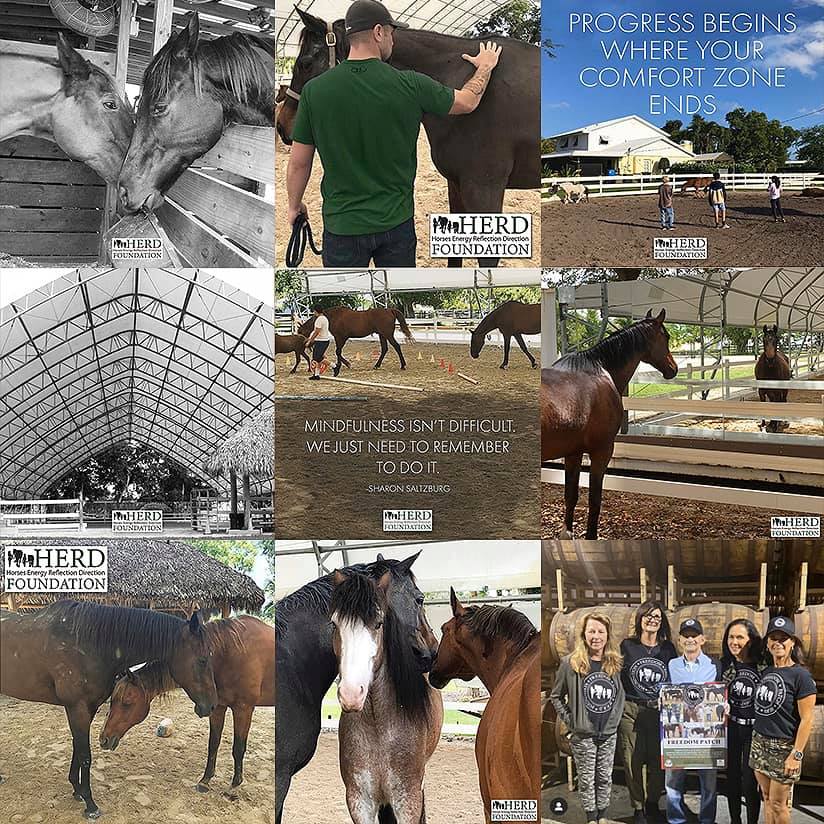

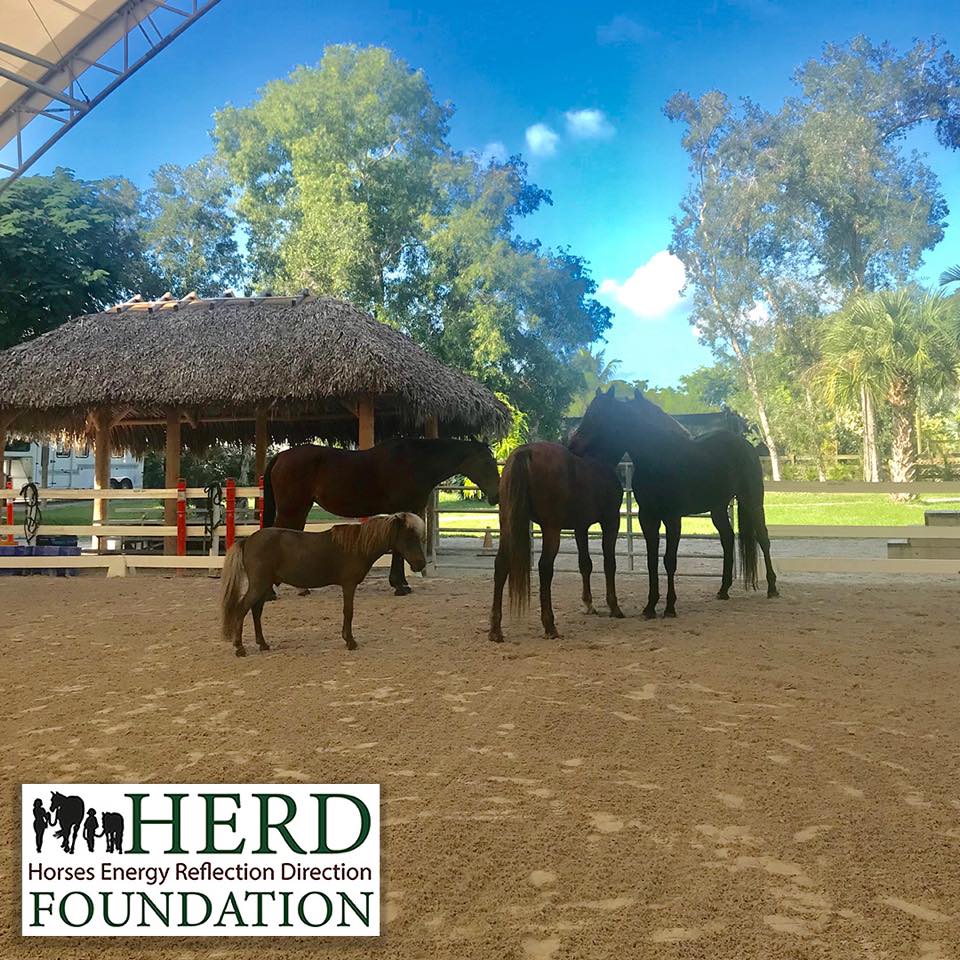

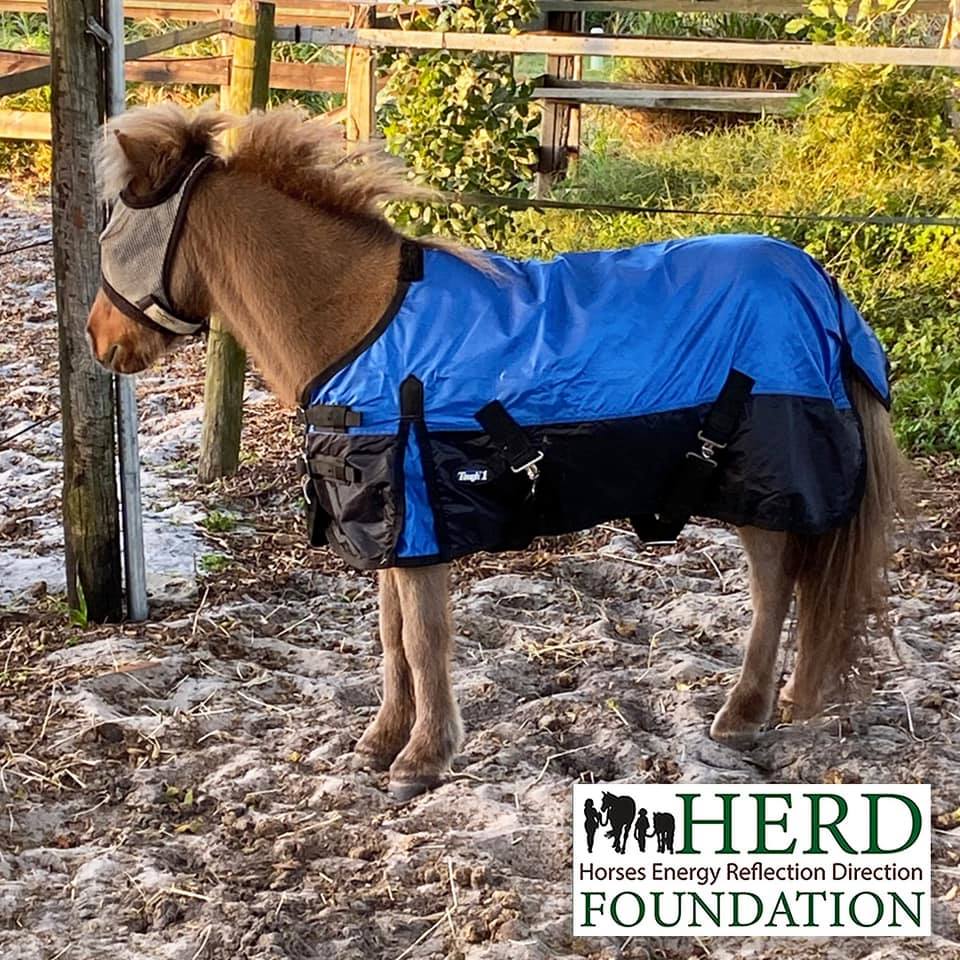

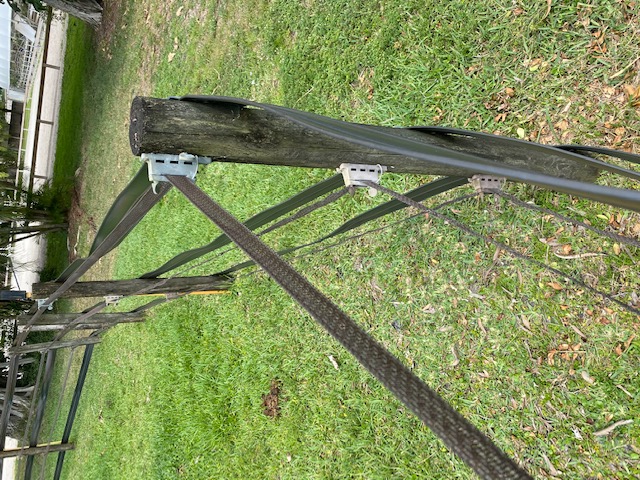
Are the organization's rules, restrictions and warnings (signage) conspicuously posted in easily accessible locations? Yes
Are the organization's emergency contacts, including veterinarian contact information, conspicuously posted in easily accessible locations? Yes
Are human and equine first aid kits easily accessible? Yes
Regarding all shelters where horses are housed including run-in sheds:
Do horses have assigned stalls in the barn/structure(s) or exclusively assigned shelter locations where they are separated from other horses with a barrier? Yes
How many hours per day, on average, are horses stalled or restricted to these sheltered exclusive shelter locations? 4-8
How often are the stalls/shelters cleaned, i.e., kept in good repair and free of standing water, accumulated waste, sharp objects and debris? 6-7 Days a Week
Do all stalls/shelters allow horses to lie down, stand up and turn around and provide protection from inclement weather (wind, sleet, rain, snow and extreme temperatures)? Yes
Are stalls/shelters kept in good repair, with adequate ceiling height, and free of standing water, accumulated waste, sharp objects and debris? Yes
Are floors constructed and maintained for both good drainage and traction? Yes
Is there a ventilation and circulation system in place to allow free flow of air to control temperature, and humidity, and to prevent air stagnation? Yes
Is wiring inaccessible to horses and maintained for safety in all areas of facility? Yes
Are fire prevention/protection measures (fire alarms, extinguishers and sprinkler systems) maintained and in good working order? Yes
Is there adequate lighting to ensure safety in all areas of facility? Yes
How many hours per day, on average, are horses turned out:
Equines are out 9 to 15 hours per day
The following describes the pastures at this facility:
This facility has a written plan in place for pasture management, which includes guidelines for seeding, fertilizing, irrigation, mowing, dragging, harrowing, manure removal, removal of debris, the control of poisonous plants, and a schedule for cleaning
A dedicated staff person(s) is responsible for pasture management
All pastures are fenced to prevent escape or injury
Electric fencing is used; electric wires or tape fence are visibly marked
Fencing checks, such as broken or missing planks, loose fence posts, exposed or loose nails, detached wires, etc., are done regularly
Pastures are rotated
Pastures have natural protection for equines (i.e., trees)
Pastures have man-made protection for equines (i.e., shelters)
This facility does not have pastures where equines can graze on pasture grass
Barbed wire is used for fencing
The following describes the turnout areas other than pastures at this facility:
This facility has a written plan in place for the maintenance of turnout areas, which includes a schedule for cleaning, manure removal, and dragging
A dedicated staff person(s) is responsible for the maintenance of turnout areas
All turnout areas are fenced to prevent escape or injury
Electric fencing is used; electric wires or tape fence are visibly marked
Turnout areas have man-made protection for equines (i.e., shelters)
Fencing checks, such as broken or missing planks, loose fence posts, exposed or loose nails, detached wires, etc., are done regularly
This facility does not have turnout areas
Barbed wire is used for fencing
The following policies and procedures are in place at the facility to restrict public access and to keep horses safe:
The property owner, staff member or caretaker lives on the premises and ensures that public access is restricted and is responsible for the security of the facility and equines
There is a mechanism in place to monitor equines overnight
By Appointment Only signs are posted.
No Trespassing signs are posted
Hold Harmless signs are posted
Entrance gates are locked at night
Visitors are only permitted at specific times
The property is fitted with motion lights
The property is fitted with a security system that is monitored internally by staff (or the property owner)
The perimeter of the property is fully fenced
A security guard is present at night
Authorized Personnel Only signs are posted
Visitors are only permitted in specific areas
The property is fitted with a security system monitored by police or a professional service
Equine Care/Emergency Preparedness: Johnson's Folly Horse Farm (*Main) 2026 and 2025 This section is required.
Horse Health Care/Barn Management Records: What system is used to collect and store health/horse care records?
Notebook or equivalent (technology not utilized)
The following items are consistent with our feed management plan and practices:
Equines are provided with individualized feeding plans, including supplements, according to the equine's age, breed/type, condition, size, work level and any health issues, consisting of nutritious food provided in sufficient quantity and access to adequate natural forage, or be fed daily, or as recommended by the organization's veterinarian
Feed plans are determined in consultation with a veterinarian
Supplement plans are determined in consultation with a veterinarian
Equines are fed grain in individual stalls
Staff and/or volunteers are trained in proper feed measurements and protocols and observed periodically to ensure they are feeding correctly
The feed chart is centrally located and updated as needed
The area(s) where hay, feed, grain, and supplements are stored are kept clean, free of debris and chemicals, and protected from weather and other animals in rodent-proof and mold-proof containers and grain bins
Feed, supplements and hay types are clearly labeled
Water sources, i.e., buckets, troughs, automatic waterers, etc. are kept clean, free of contaminants, debris and chemicals, protected from weather and other animals, and be positioned or affixed to minimize spillage.
Medications are kept in a secure area
Equines are fed grain in groups
Is clean, potable water available at all times for all equines? Yes
Hoof Care: How often is hoof care provided for each equine? Every 4-8 weeks and when an issue arises
Dental Care: How often is dental care provided for each equine? Annually and when an issue arises
Horse checks: How often are equines visually and physically checked by personnel at the facility? Every day or 6 days a week
Our organization has the following parasite and fly/insect control protocols in place, including remedies used to control flies and insects:
Fly/Insect Control Remedies:
Feed Through Products
Fly Traps and Tapes
Premise Sprays/Insecticides
Fly Spray Repellent
Fly Masks
Fans
Our organization follows the parasite control guidelines of our veterinarian, including fecal testing and de-worming
The following represent the biosecurity practices in place at facility:
Our organization follows the biosecurity guidelines of our veterinarian
Sick, affected and/or quarantined equines do not have contact with other equines or other animals
Staff are trained in best practices related to biosecurity
A specific individual is trained and assigned to care for sick, affected and/or quarantined equines
Sick, affected and/or quarantined equines are cared for last if the caretaker must also care for healthy equines
Restricted access signs are posted at primary points of access to sick, affected and/or quarantined equines
Hand sanitizers are available at all primary points of access to sick, affected and/or quarantined equines
Footbaths are available at all primary points of access to sick, affected and/or quarantined equines
Manure and bedding from sick, affected and/or quarantined equines is removed from the facility - not put in open air piles, and not spread on pastures
Quarantine areas, such as stalls, aisle ways, paddocks, and common areas, are cleaned (and needed, disinfected) after conclusion of the quarantine.
Trailers/vans used by sick, affected and/or quarantined equines are cleaned and disinfected after each use and cleaning takes place away from where equines are sheltered
Equipment used by sick, affected and/or quarantined equines is not shared
Equipment used by sick, affected and/or quarantined equines is cleaned of organic debris and disinfected after each use
Latex gloves, or equivalent gloves, are worn when working with sick, affected and/or quarantined equines
The organization has a written biosecurity plan
Volunteers are trained in best practices related to biosecurity
Equines are not quarantined on arrival.
Additional information on biosecurity:
Solitary stalls are available to use if necessary.
The following represent the manure removal practices in place at facility:
Manure is stored in dumpster(s)
Manure is hauled, sold or given away
Our organization adheres to the manure management guidelines set by the state, local authorities, and/or our organization's veterinarian
Manure is piled in an area where equines are not located
Manure piles are covered
Manure piles are composted or spread on pastures
The following steps are taken to help staff and volunteers readily identify each horse on the property:
Equines are assigned the same exclusive stall/shelter location each day
Name plates are located on the stall/shelter location
Team leaders work with new staff/volunteers until they are able to identify the equines
Photos are located on the stall/shelter location
Equines wear halters with nametags
A notebook or binder with photos and information on each equine is easily accessible
A map/diagram is posted showing the location of each equine with equine names and photos
Equine photos and profiles are available on the website
Staff and volunteers are provided with an information packet with equine profiles, including photos and detailed descriptions
Staff/volunteers are provided training on conformation, markings, colors, and breeds
Our organization has the following policies and procedures in place pertaining to tack, apparel and equipment:
Blankets, sheets and turn out apparel are fitted and utilized for each equine appropriate to the equine's needs and the weather conditions
Blankets, sheets and turn out apparel are cleaned regularly as needed
Riding Tack is always cleaned after each use
Riding Tack is inspected for overall working condition before each use by trained personnel
Riding Tack is assessed for fit before each use by trained personnel
Riding Tack is assessed for fit by trained personnel when an equine's body condition changes
Riding Tack is assessed for fit by trained personnel when an equine's disposition changes
This facility enlists the services of a professional saddle fitter at least once a year
Assigned riding tack is clearly labeled
Riding Tack is stored in a climate-controlled location
Helmets are shared
Helmets are cleaned/disinfected after each use
Helmets are replaced after a fall
Helmets are replaced at least every five years.
All equines have specifically assigned apparel, equipment and tack (saddles/bridles if ridden) that is not shared
Saddles are shared
Saddle pads are shared
Bridles are shared
Bits are shared
Blankets are shared
Sheets are shared
Turnout apparel is shared
Halters are shared
Riding Tack is always cleaned at least weekly
Riding Tack is cleaned only when needed
No equines are ridden; saddles, bridles, etc. not applicable.
Emergency Preparedness: Johnson's Folly Horse Farm: *Main This section is required.
The following plans, policies, and procedures are in place at the facility to handle emergencies and address weather related issues, fire safety procedures, and/or any additional hazardous scenarios the facility could potentially experience:
The facility owns or has access to a generator
The facility maintains at least two weeks of hay, feed, shavings and medications
The facility maintains appropriate liability and/or workers' compensation insurance
Emergency procedures are posted prominently
The facility collects and maintains medical information from staff, volunteers, and clients
The organization has a written emergency preparedness/safety plan (EPP)
The facility follows the specific procedures to help PREVENT emergency situations:
Smoking is strictly prohibited
NO SMOKING signs are posted prominently
Hay is stored away from permanent or temporary structures where equines are stalled
Permanent or temporary structures where equines are stalled are kept free of dust, cobwebs, trash, cleaning rags, and other flammable items
Aisles and doorways are kept clear
Heaters with automatic shutoff settings are used
How often are the following checked or performed?
Fire Extinguishers are checked: Semi-annually
Smoke detectors are checked: Semi-annually
Fence lines are checked: Daily
Turnout Areas are checked: Daily
Sprinkler systems are checked: Not at all/NA
Fire drills are conducted: Not at all/NA
Review of safety protocols with staff are conducted: Semi-annually
Review of safety protocols with volunteers are conducted: Semi-annually
The Emergency Preparedness Plan is reviewed and updated: Semi-annually
Equine Transportation: 3= Onsite: 3 (0 + 3) + Offsite: 0
2-horse van/trailer with truck:
1 Access onsite but not owned
4-horse van/trailer with truck:
1 Access onsite but not owned
6-horse van/trailer with truck:
1 Access onsite but not owned
© Copyright 2018 EQUUS Foundation 1917 2.00